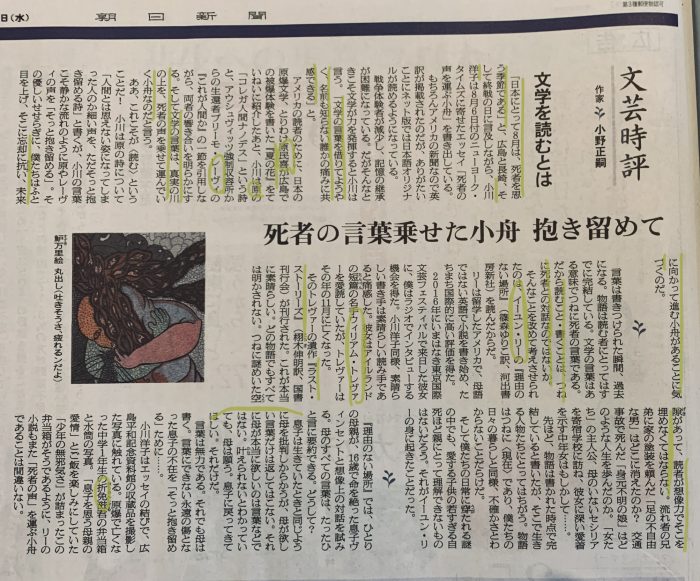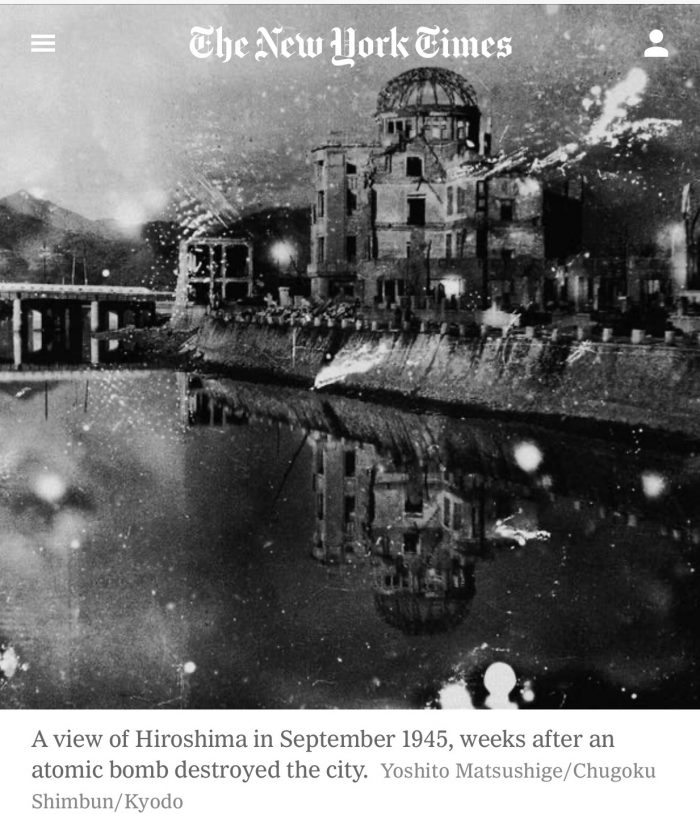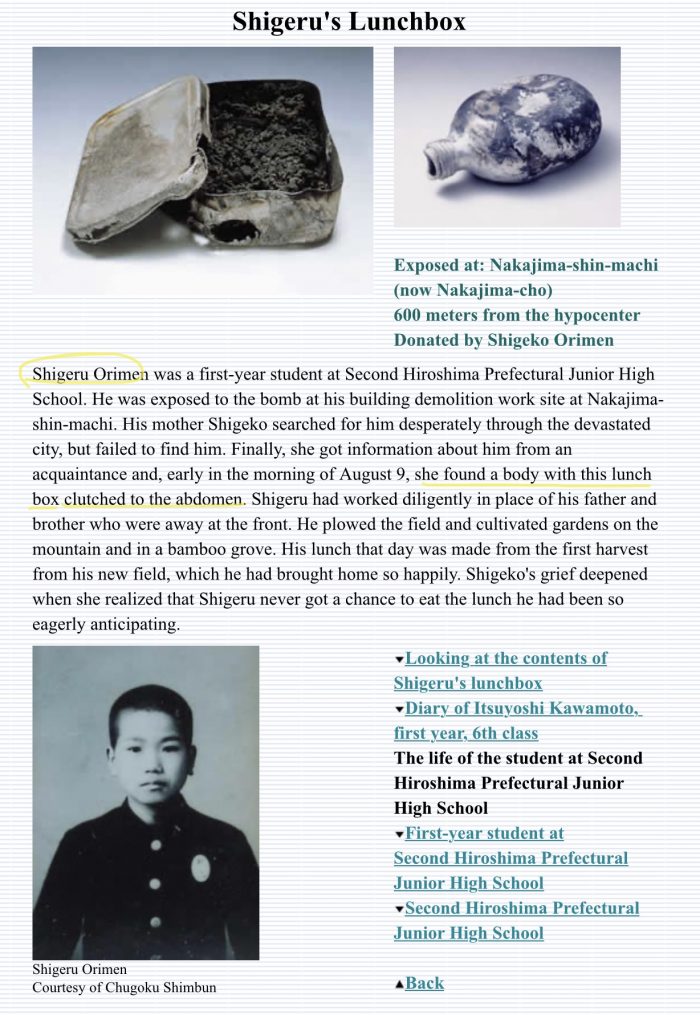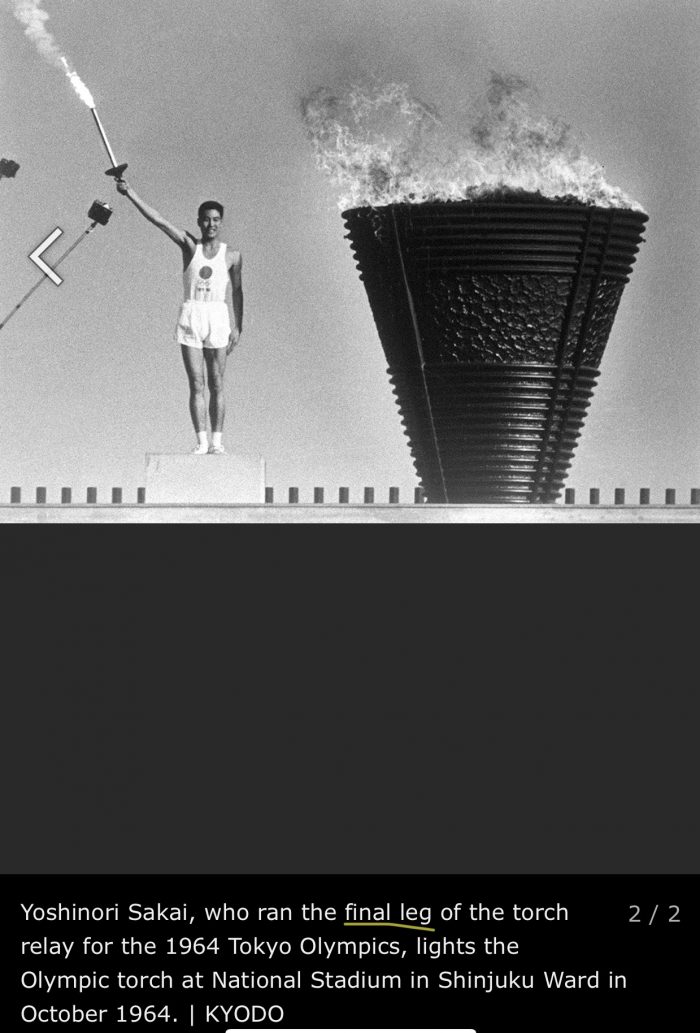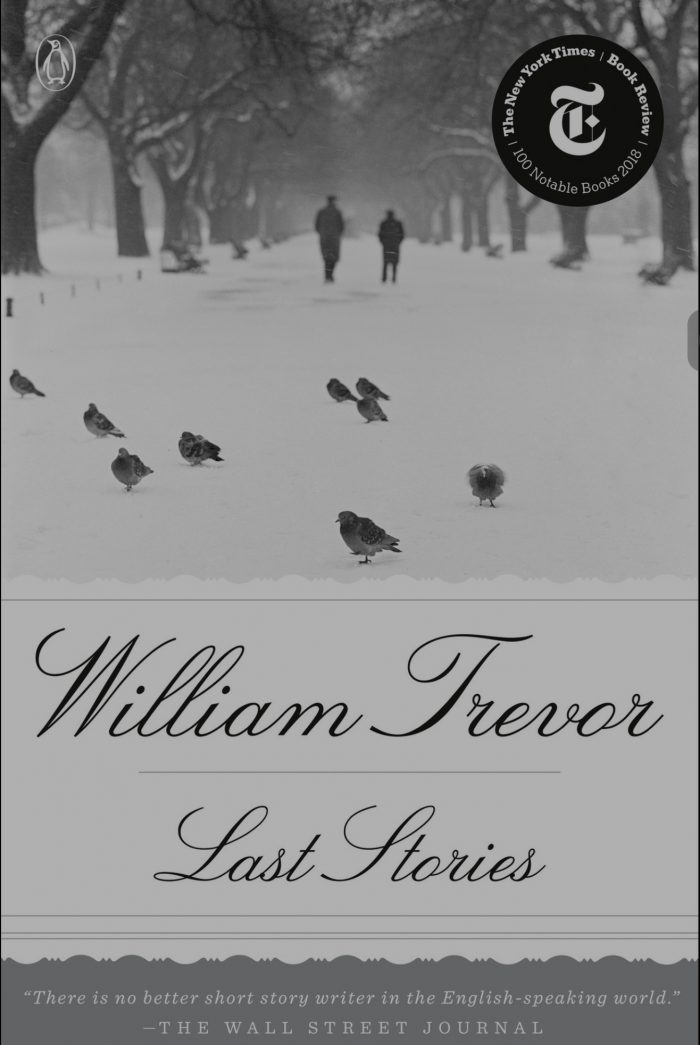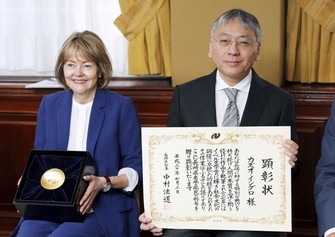10年ほど続けている英語のクラスで取り上げ、話をした。きっかけは朝日新聞小野正嗣の文芸時評を読んだから。小川洋子の記憶と文学の関係についてはカズオ・イシグロと通じるものがある、というかほとんど同じだ。小川さんの8ヒロシマの記憶に関するメモはその内容はもとより文章が美しい。NYTの英訳にはもどかしさを感じたけど「文化の違いだから・・・」。書評の小野正嗣の文章も美しい!
How We Retain the Memory of Japan’s Atomic Bombings: Books
Literature is a refuge we turn to when we are forced to confront/ contradictions that lie beyond reason, writes the Japanese novelist Yoko Ogawa.
The atomic bombing of Hiroshima occurred on Aug. 6. The bombing of Nagasaki on Aug. 9. The announcement of surrender came on the 15th. In Japan, August is the time when we remember the dead.
This year, the 75th anniversary of the atomic bombings would have been observed during the Tokyo Olympics. But the Games were postponed because of the spread of the novel coronavirus, and we will be left instead to offer our prayers for the dead in an atmosphere of unexpected calm.
But, in fact, this tiny box contained something more important: the innocence of a young boy who had been full of anticipation for his simple lunch, and his mother’s love. Even when the last victim of the atomic bomb has passed away and this lunchbox is no more than a petrified relic, as long as there is still someone to hear the voice concealed within it, this memory will survive. The voices of the dead are eternal, because human beings possess the small boat — the language of literature — to carry them to the future.
死者の声を運ぶ小舟
1964年の東京オリンピック大会で聖火の最終ランナーを務めたのは、19歳の、無名の陸上選手だった。その青年は、原爆投下の当日、広島で生を受けていた。真っ白いランニングシャツと短パンを身に着け、聖火台に続く長い階段を駆け上がる彼の姿は、実に清潔で、均整がとれ、全身に若々しさが満ちあふれていた。この映像を目にするたび、敗戦からわずか19年で、世界中の人々が集まるスポーツの祭典が日本で催された、という現実に驚かされる。人類が経験したことのない徹底的な破壊の中から誕生した、一人の生命が、炎をなびかせながら、一段一段、火を運んでゆく。最終聖火ランナー選出の裏に、政治的な意図が入り乱れていたとしても、広島で生まれた19歳の青年が放つ生命力には、何のごまかしもなかった。
今、私の手元に、広島平和記念資料館の収蔵品を撮影した写真集『Hiroshima Collection』(撮影土田ヒロミ)がある。中学1年生、折免滋(おりめんしげる)君の弁当箱と水筒の写真を見つめている。滋君は動員学徒として作業中に、爆心地から500メートルで被爆。川の土手に積み重ねられた遺体のカバンから、お母さんがこれを発見した。「今日は大豆ご飯だから、昼飯が楽しみだ」と言って出かけたという。弁当箱は歪み、蓋には穴が開き、中身は真っ黒に炭化している。
この小さな箱には、息子を思う母親の愛情と、質素な大豆ご飯を楽しみにしていた少年の無邪気さが詰まっている。たとえ原爆の体験者が一人もいなくなっても、弁当箱が朽ちて化石になっても、小さな箱に潜む声を聴き取ろうとする者がいる限り、記憶は途絶えない。死者の声は永遠であり、人間はそれを運ぶための小舟、つまり文学の言葉を持っているのだから。
ここから急にカズオ・イシグロになるかは??(単に好きだから、書き留めておきたいから・・・)
The full text of Nobel Prize-winning British novelist Kazuo Ishiguro’s message for Sunday’s 75th anniversary of the atomic bombing in Nagasaki (2020/8/9)
This is the anniversary of a terrible event. But this milestone also marks seventy five years during which time there has been no repeat of what was inflicted on the people of Nagasaki that day. My mother, then a teenager in the city, was able to go on to enjoy a long peaceful life. So this is an anniversary that brings triumph and hope, as well as horror and sadness.
Let us not forget how fragile our civilization remains. And in our current, troubled times, let us not forget the importance of the international cooperation and understanding that has brought us safely through these years. Let us remember the huge dangers that continue to threaten us, and the supreme value of human life.

